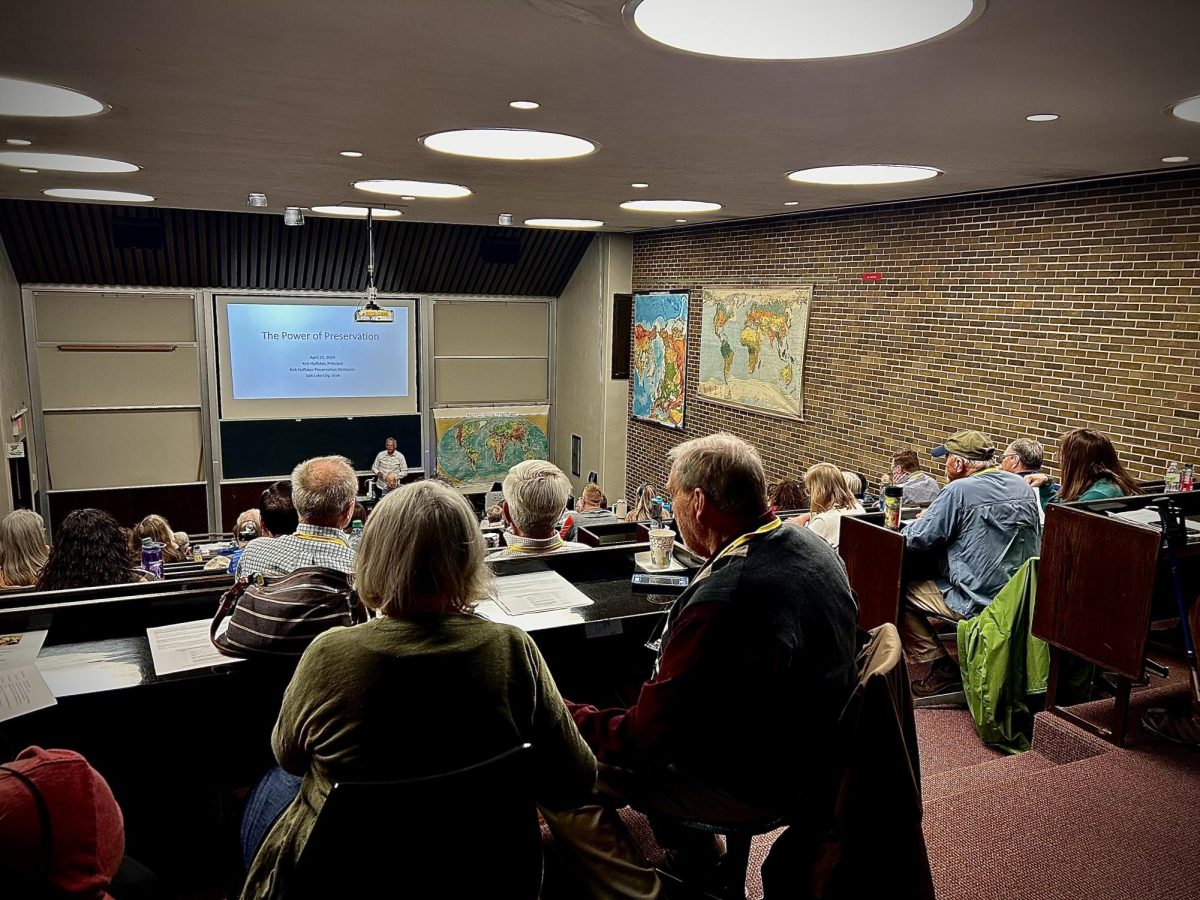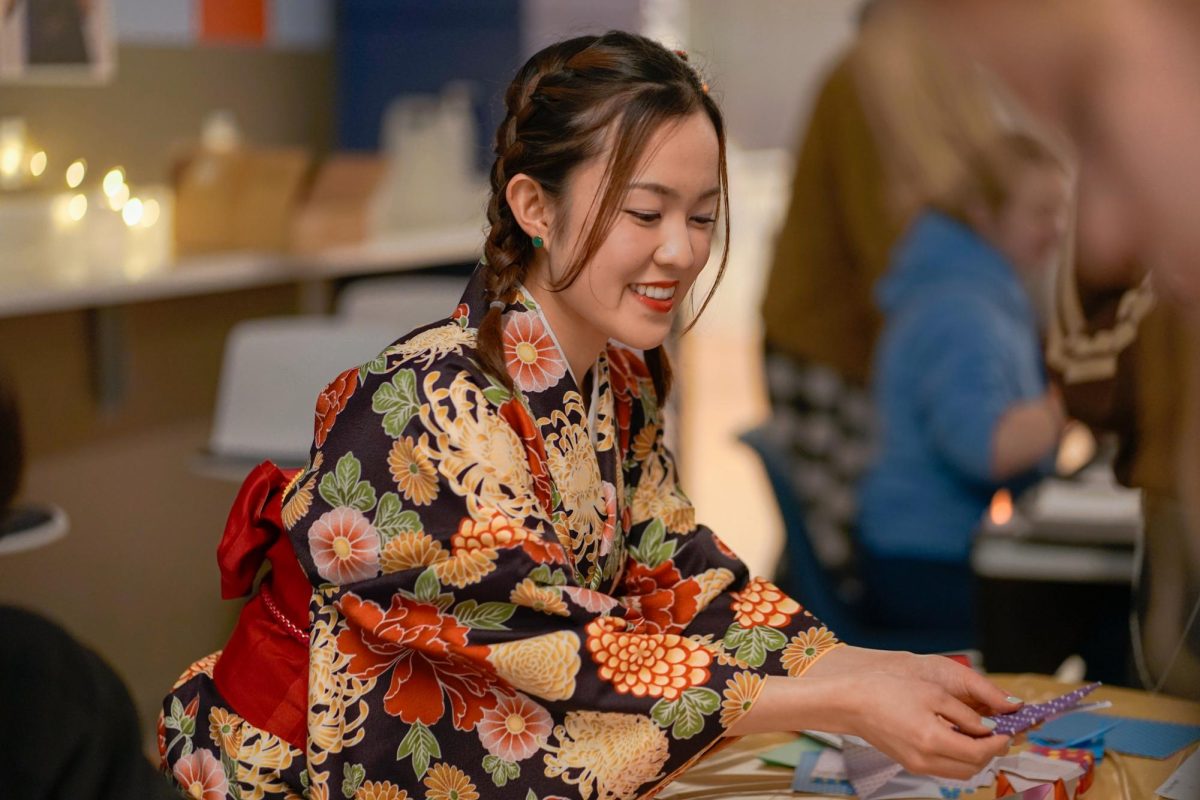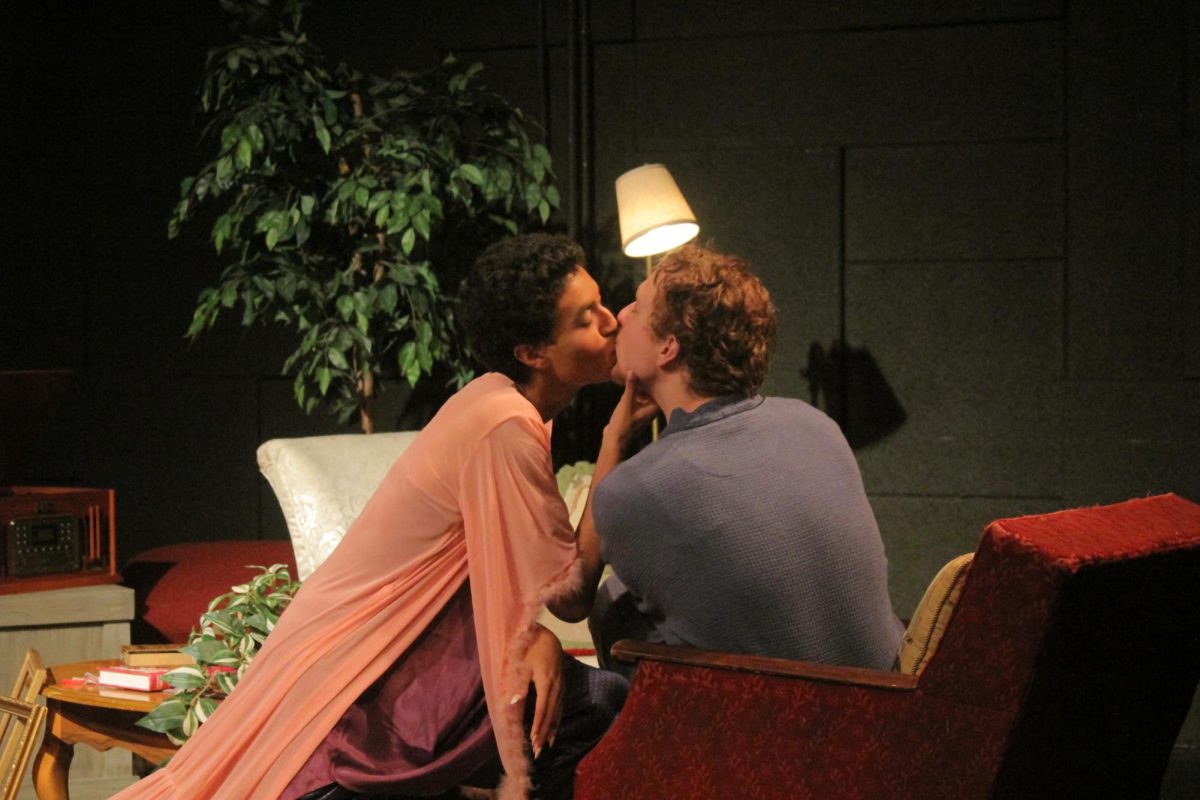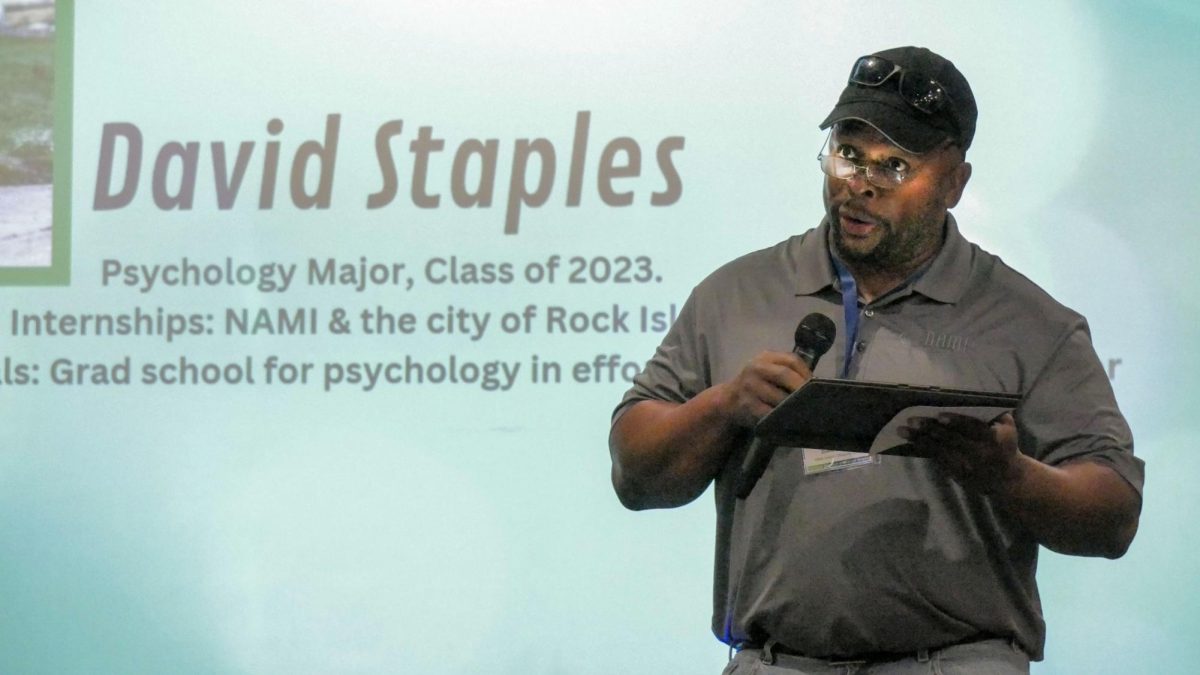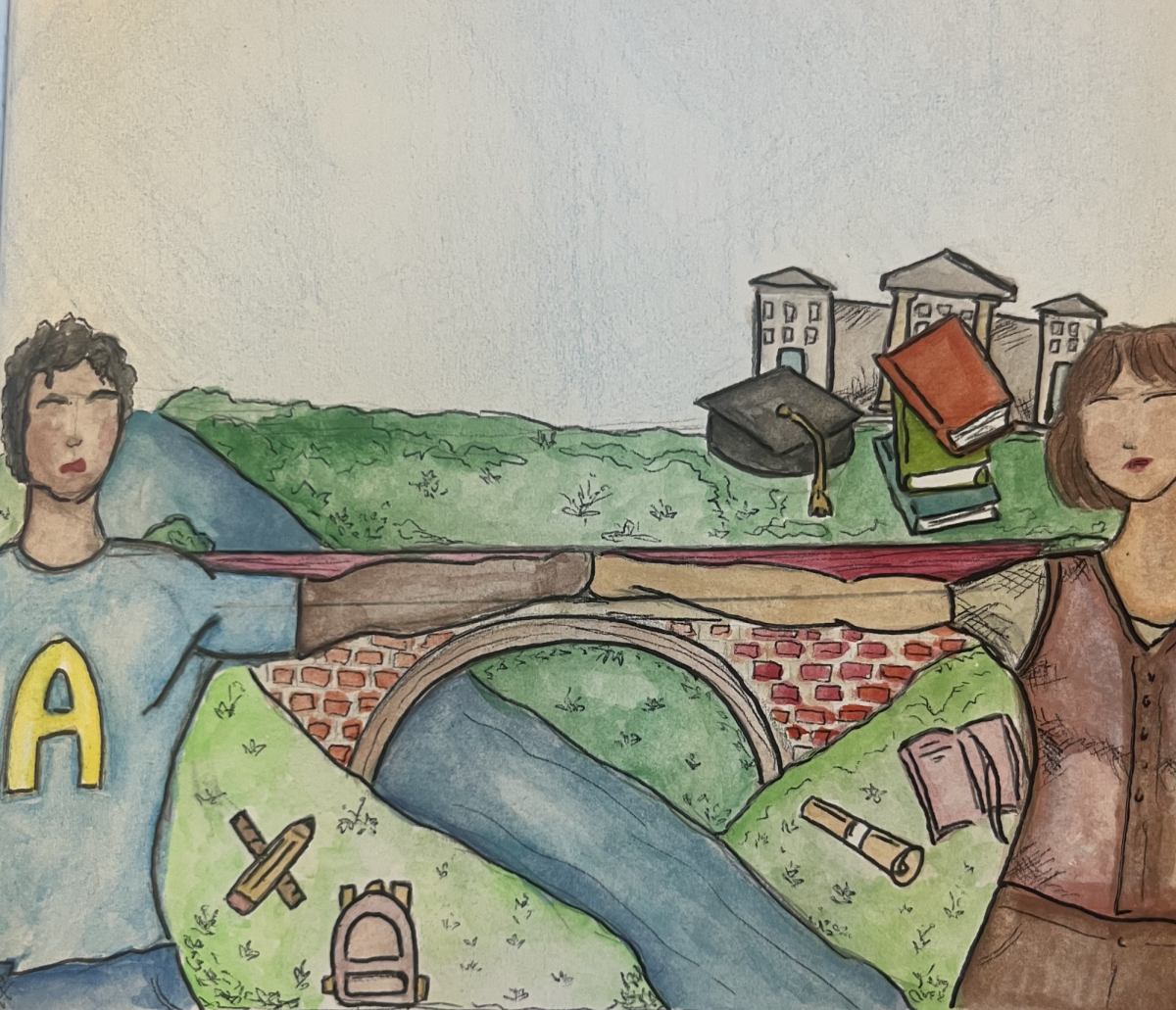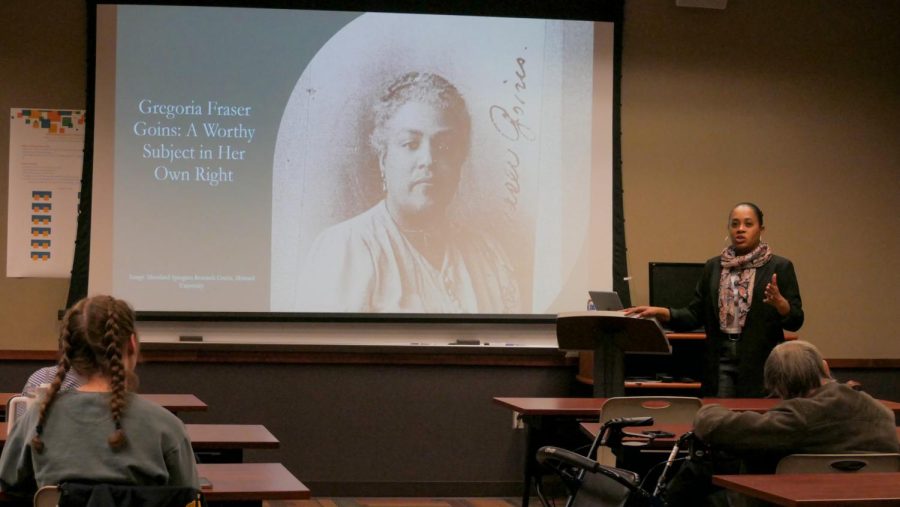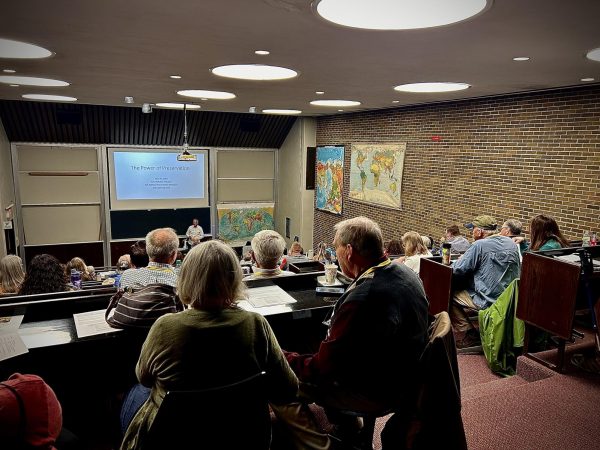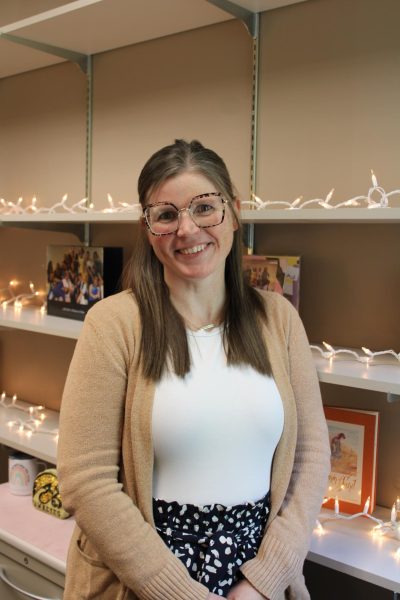Professor discusses a bicultural 19th century icon and scholar
Dr. Lauren Hammond Ford, Ph.D., Associate Professor of History at Augustana College, during her presentation on Gregoria Fraser Goins at Davenport Public Library on Wednesday, March 8, 2023.
March 15, 2023
A professor from Augustana College recently gave a lecture at the Davenport Public Library. On Wednesday, March 8, Dr. Lauren Hammond Ford spoke at the Fairmount library in Davenport about Gregoria Fraser Goins, an Afro-Dominican scholar and musician from the 1800s.
Goins was born in the Dominican Republic in 1883 to a Dominican father, who died when she was 11 years old. Her mother, an American, was believed to be one of the first Black female physicians in the United States. After her father’s death the two moved to the United States, where Goins studied music at Syracuse University. However, her professors conspired to prevent her from receiving a degree as a person of color.
“As a musician she saw herself as a physician of the soul,” Hammond Ford said, echoing the profession of Goins’s mother.
Goins established ties with Howard University, which Hammond Ford said in her talk is sometimes known as the Harvard of historically Black colleges and universities (HBCUs) and even today has one of the few historically Black medical schools. Goins owned property in the northwest section of Washington as well as on the Chesapeake Bay, though she later gave these up in the interest of establishing a medical scholarship at Howard.
Hammond Ford said that Goins never renounced her Dominican background, visiting frequently and offering lessons in classical music to her hometown, but that she also faced the troubled relationship the Dominican Republic has with race.
“There’s actually a larger background story,” Hammond Ford said. “Between the 1820s and 1840s, the president of the then-unified Dominican Republic and Haiti invited Black Americans to the island, in an attempt to escape some of the racism that was going on.”
In spite of the country’s issues with racism, Goins made an attempt to move back and ultimately failed, as the Dominican government had a law in place that made some pay a fee or not come. Hammond Ford said in her research she found a copy of the law and of many letters that Goins had written.
One message of Hammond Ford’s talk is that Goins’s life is worthy of study, just like that of her influential mother. Many people are also unfamiliar with these places and times in history. Her talk about Goins also took place on International Women’s Day.
“This kind of talk is reminiscent of what I do in the classroom,” Hammond Ford said. “I hope that people get a better understanding of U.S. — Dominican Relations.”
There are usually one to two a month at the library, and librarian Rachel Rugg helps organize them.
“I try to do different things like health, history and then more silly ones,” Rugg said. “One time there was someone from the Alzheimer’s Association and people, maybe they just had a loved one diagnosed, were so happy that someone was talking about it.”
She tries to find presentations that bring awareness to a certain topic. Caribbean history is not exactly well known, despite the location’s popularity for tourism.
“It’s never really something we learn about,” Rugg said, reflecting on Hammond Ford’s talk.
Other Women’s History Month events supported by Augustana include the International Women’s Day Fair on March 8, which took place in the Gävle rooms and featured multiple groups such as Take Back the Night and HerCampus, as well as the Shades of Beauty Summit, happening Sunday, March 19.


